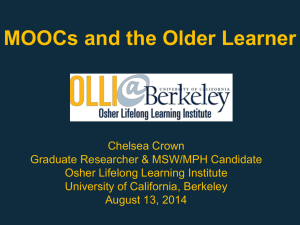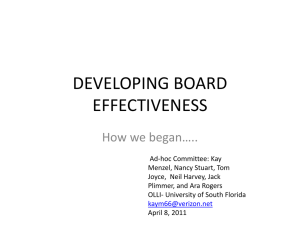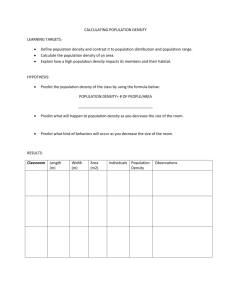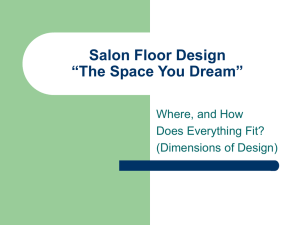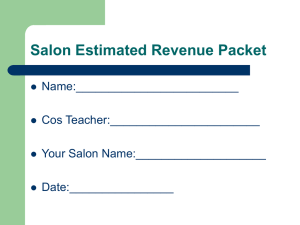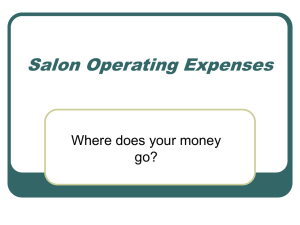Program Originality: Fourth Age Salon at OLLI @Berkeley The
advertisement
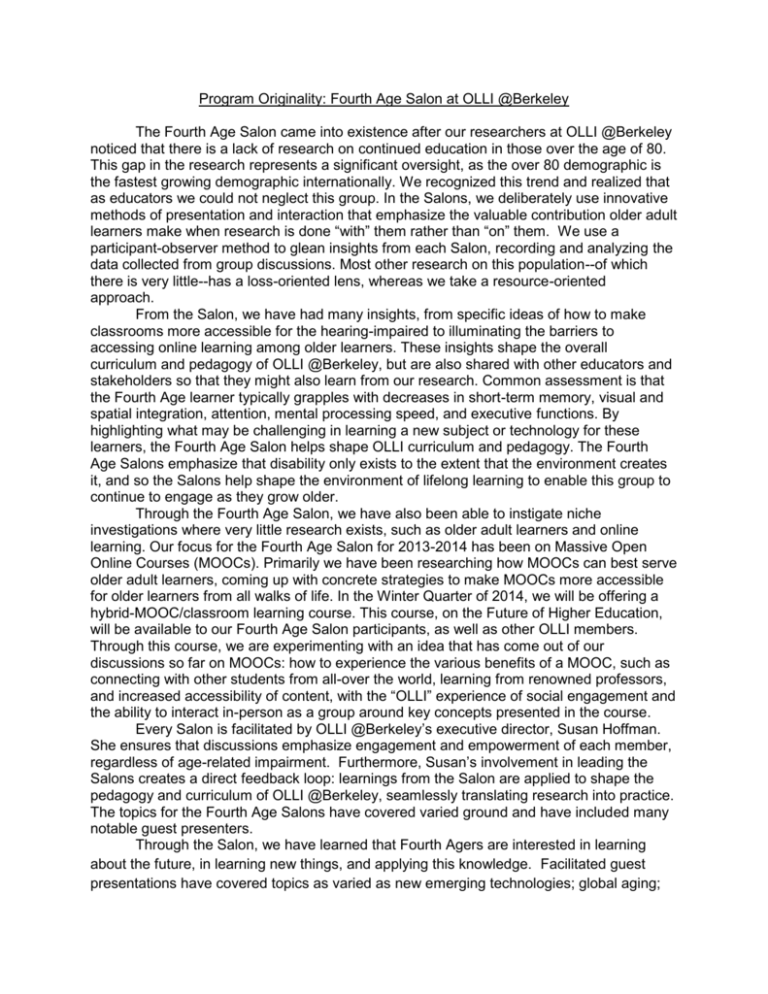
Program Originality: Fourth Age Salon at OLLI @Berkeley The Fourth Age Salon came into existence after our researchers at OLLI @Berkeley noticed that there is a lack of research on continued education in those over the age of 80. This gap in the research represents a significant oversight, as the over 80 demographic is the fastest growing demographic internationally. We recognized this trend and realized that as educators we could not neglect this group. In the Salons, we deliberately use innovative methods of presentation and interaction that emphasize the valuable contribution older adult learners make when research is done “with” them rather than “on” them. We use a participant-observer method to glean insights from each Salon, recording and analyzing the data collected from group discussions. Most other research on this population--of which there is very little--has a loss-oriented lens, whereas we take a resource-oriented approach. From the Salon, we have had many insights, from specific ideas of how to make classrooms more accessible for the hearing-impaired to illuminating the barriers to accessing online learning among older learners. These insights shape the overall curriculum and pedagogy of OLLI @Berkeley, but are also shared with other educators and stakeholders so that they might also learn from our research. Common assessment is that the Fourth Age learner typically grapples with decreases in short-term memory, visual and spatial integration, attention, mental processing speed, and executive functions. By highlighting what may be challenging in learning a new subject or technology for these learners, the Fourth Age Salon helps shape OLLI curriculum and pedagogy. The Fourth Age Salons emphasize that disability only exists to the extent that the environment creates it, and so the Salons help shape the environment of lifelong learning to enable this group to continue to engage as they grow older. Through the Fourth Age Salon, we have also been able to instigate niche investigations where very little research exists, such as older adult learners and online learning. Our focus for the Fourth Age Salon for 2013-2014 has been on Massive Open Online Courses (MOOCs). Primarily we have been researching how MOOCs can best serve older adult learners, coming up with concrete strategies to make MOOCs more accessible for older learners from all walks of life. In the Winter Quarter of 2014, we will be offering a hybrid-MOOC/classroom learning course. This course, on the Future of Higher Education, will be available to our Fourth Age Salon participants, as well as other OLLI members. Through this course, we are experimenting with an idea that has come out of our discussions so far on MOOCs: how to experience the various benefits of a MOOC, such as connecting with other students from all-over the world, learning from renowned professors, and increased accessibility of content, with the “OLLI” experience of social engagement and the ability to interact in-person as a group around key concepts presented in the course. Every Salon is facilitated by OLLI @Berkeley’s executive director, Susan Hoffman. She ensures that discussions emphasize engagement and empowerment of each member, regardless of age-related impairment. Furthermore, Susan’s involvement in leading the Salons creates a direct feedback loop: learnings from the Salon are applied to shape the pedagogy and curriculum of OLLI @Berkeley, seamlessly translating research into practice. The topics for the Fourth Age Salons have covered varied ground and have included many notable guest presenters. Through the Salon, we have learned that Fourth Agers are interested in learning about the future, in learning new things, and applying this knowledge. Facilitated guest presentations have covered topics as varied as new emerging technologies; global aging; the benefits of aging in place vs. a retirement community; key emotional factors in longevity (particularly depression, grief, and loss); and gender differences in aging. There have also been several presentations on hearing impairment and cognitive fitness. Notable presenters in the Fourth Age Salon have included: Greg Niemeyer, UC Berkeley professor, on the brain-stimulation aspects of video games and game design for older adults; Kazumi Hoshino, UC Berkeley visiting scholar, on international healthy aging with examples from Japan, Sweden, and the US; Ken Goldberg, PhD, UC Berkeley Professor, on the logarithms used in his crowdsourcing sites. From him the group learned about Artificial Intelligence (AI), Control, Intelligent Systems and Robotics (CIR), Networked Robots, Graphics (GR), and Art and Technology; Lauren Vanett, OLLI Faculty, a Core Strengths Coach, on grief and loss; Allan Chinen, MD, UCSF psychiatrist, on gender differences in aging as seen in fairy tales and folk literature globally; Mary Heller, Ph.D., clinical psychologist, on depression; Peggy Kelly, Ph.D., clinical psychologist and hearing expert; Andy Gaines, executive director of Ashby Village, on the national Village Movement; Lawrence Lustig, MD, from UCSF, on cochlear implants; and David Anderson, MD, an OLLI member and recently retired internist from Kaiser, who provides technical support for online learning with older adults. Armando Fox, PhD, from Berkeley Resource Center for Online Education (BRCOE) is scheduled for January, 2014, to discuss Massive Open Online Courses (MOOCs).

